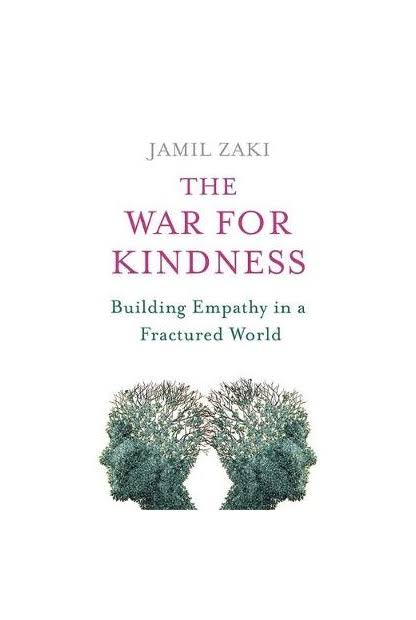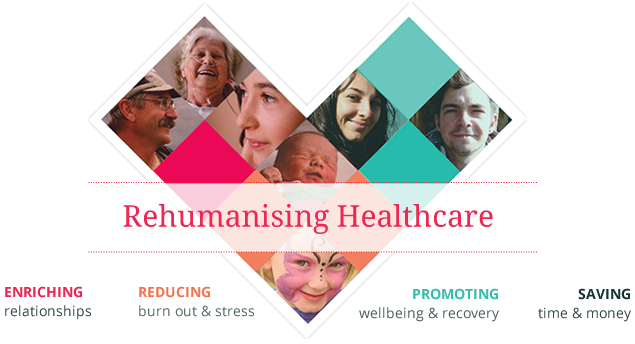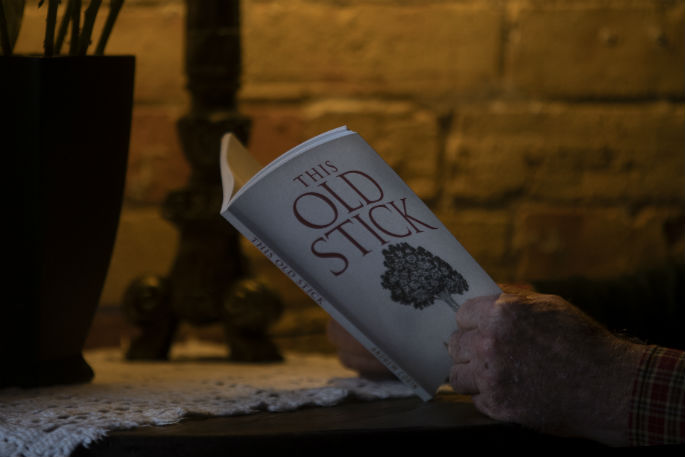So says Jamil Zaki, psychologist and author of ‘The War For Kindness; Building Empathy In A Fractured World.’

Empathy, according to Psychology Today, is the experience of understanding another person's thoughts, feelings and condition from his or her point of view, rather than one's own. Empathy facilitates prosocial or helping behaviours that come from within, rather than being forced, so that people behave in a more compassionate manner.
There are clear benefits of empathy:
- Happier relationships.
- Patients of empathic doctors are more satisfied with care and more likely to engage in treatment.
- Empathic people benefit personally with lower rates of stress and depression.
- Empathic adolescents who are able to pick out other people’s emotions are better adjusted.
The literature describes levels of empathy:
- Emotional empathy – vicariously sharing another person’s feelings.
- Cognitive empathy – trying to understand the reasons for another’s feelings.
- Empathic concern/compassion – a desire for another’s well-being to improve.
Robin Youngson is a New Zealand doctor who has invested substantially in promoting the role of compassion in healthcare, and the body of evidence for its value, through the organisation he founded, 'Hearts in Healthcare.'

Empathy can be a double-edged sword for people who work in caring professions. Giving bad news in an empathic and emotionally engaged way can be hugely meaningful and beneficial for the patient but potentially hazardous and costly for the person delivering it. Many, if not most, of us in caring professions such as nursing and medical roles, are doing what we do from a desire and motivation to care for others, but the consequences of such care in intense settings of chronic suffering can risk burning us out emotionally. One strategy to mitigate this risk is known as Defensive Dehumanising, where healthcare professionals feel the need to turn off empathy and stop seeing the whole person in front of them, just to protect themselves.
I recently delivered a presentation at the New Zealand annual conference for General Practice describing the 'My Best Day' project, which has been previously referred to in the Edge Effect blog. In part, I spoke about the importance of understanding patient priorities in the healthcare journey through making empathic connections with patients. At the Q and A time following this, one attendee asked – “doesn’t making this type connection with patients risk becoming too involved and losing objectivity?” My response was to reference the advice of two experts; the first was a psychiatrist teacher of mine who discussed the importance of having appropriate boundaries in the healthcare encounter to ensure that adequate professional distance was maintained and to protect the doctor from emotional burnout. The second was from the work of Hamish Wilson and Wayne Cunningham (Being a Doctor) where they impressed on me the importance of high EQ in the clinical relationship, to move it from a biomedical encounter to more of a holistic biopsychosocial engagement. Both approaches have their place. The nature of encounters with patients, particularly in primary care where relationships can be deep and vulnerable, places a high demand and risk of mental and emotional exhaustion. Boundaries to protect against such burnout are vital for the longevity of the clinician. However, a too-dispassionate, aloof, and emotionally disengaged clinician will miss the opportunity to connect meaningfully with their patient and perform their role of healer in the health care journey.
If we are serious about making connections with those who are different to us, learning their stories can be a powerful tool.
Hannah Arendt has said: “Story telling reveals meaning without committing the error of defining it….it brings about consent and reconciliation with things as they really are.”
Narrative fiction has a very important role in enhancing empathy. Well written, it can draw the reader deeply into the lives of others, particularly those who are separated by time, space, gender, ethnicity, religion, and culture. The reading process enables a connection that moves from the surface to the deep, with an emotional heart which can allow the reader to view someone from the inside. Zaki refers to a wealth of evidence that correlates empathy with reading fiction.
At a recent conference, Professor Gregory Phillips, from School of Medicine at Griffith University (Australia), spoke on ‘Cultural safety, racism and power in aboriginal health.’ His presentation was confronting and disturbing, in part due to the reality of issues such as unconscious bias and institutional racism in the work we do as health professionals. He received a standing ovation from 500 mostly white professionals. What caused us to turn our discomfort at his message into applause? He shared stories which enabled us to empathically engage. Professor Phillips described the holistic spiritual nature of aboriginal people and its inextricable link with sickness and health (not dissimilar to many indigenous people, including Maori) – how do we enable these central issues to impact on a consultation? The answer is complex, but I believe an important starting point is to listen to their stories, and in doing so, develop an empathic connection.
This is the motivation behind my book ‘This Old Stick.’ The back-cover blurb says:
This book tells the stories of the older people around us – stories which are at once familiar and extraordinary.

The purpose of the stories is more than just an enjoyable read about delightful and challenging characters. I want readers to find empathy with older people they may not feel they have much in common with, and be reminded of the gifts and precious treasure the elderly bring to our communities. In doing so, ‘This Old Stick,’ coupled with empathy, can be a tool to help heal the disconnection that exists in society between those considered heathy and functional, and those who are older and considered less so.